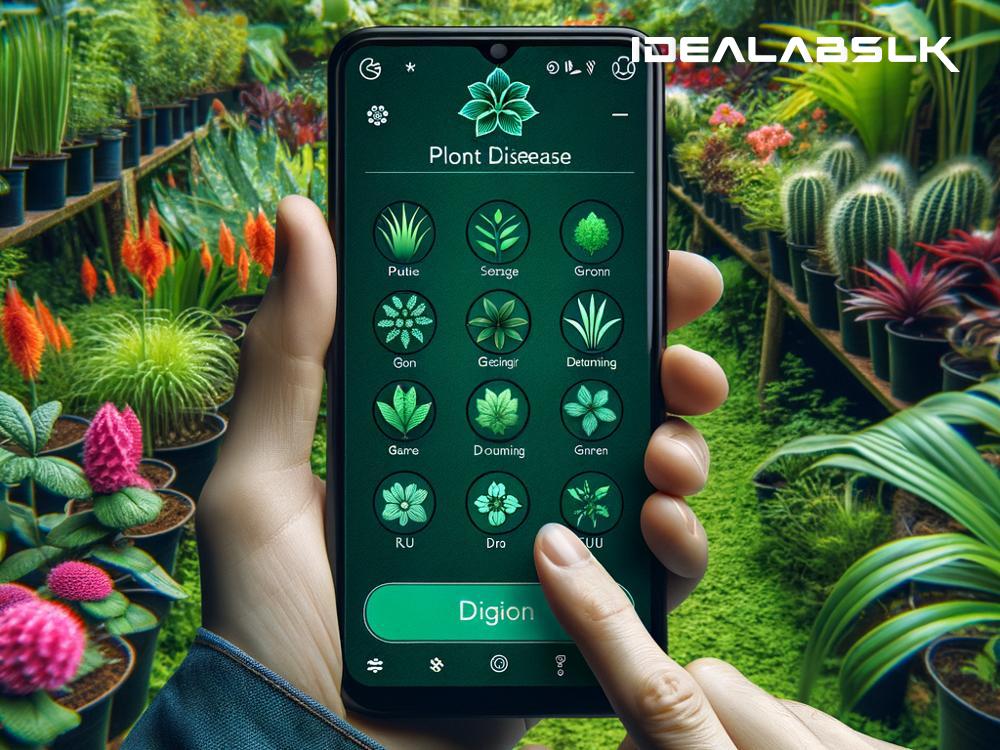Harnessing AI to Keep Gardens Green: The Role of Smart Gardening Tools in Disease Detection
In the world of gardening, the arrival of unwelcome guests - plant diseases - is a constant battle. These ailments can silently slip into our gardens, turning vibrant leaves brown and causing blooms to wither away. However, the integration of Artificial Intelligence (AI) in smart gardening tools is revolutionizing how we detect and manage these ailments, ensuring our gardens remain flourishing and healthy.
The Challenge of Plant Diseases
Plant diseases can be as diverse as the plants they affect. From fungal invasions to viral attacks, these diseases not only hinder plant growth but can decimate entire gardens if left unchecked. The traditional method of diagnosis often requires a keen eye and extensive gardening experience, a challenge for beginners and even seasoned gardeners due to the subtle nature of some symptoms.
The AI Solution
Enter AI - a technology that, by its design, enhances human capabilities. In gardening, AI-powered tools bring a new level of precision and efficiency to the task of disease detection. These smart tools, ranging from apps on our phones to sensors in the soil, are imbued with algorithms capable of identifying signs of disease long before a human eye might notice.
How It Works
The principle behind AI in gardening tools is relatively straightforward. Machine learning, a subset of AI, allows these tools to learn from vast datasets that include images and information about various plant diseases. When you use an AI-powered tool to scan your plant, it compares what it sees with its learned database to identify potential matches. This process, almost instantaneous for the AI, can pinpoint specific diseases, their severity, and suggest remedies.
The Benefits
-
Early Detection: One of the paramount advantages of using AI for plant disease identification is the ability for early detection. Symptoms that might be invisible or easily mistaken for something else by human observers can be accurately identified by AI, often catching diseases before they've had the chance to do significant damage.
-
Accessibility: AI tools democratize expert knowledge in gardening. Not everyone has a plant pathologist on speed dial, but many can access a smartphone app. These tools put expert-level diagnostics in the palm of your hand, making it easier than ever to care for your garden.
-
Educational Value: Beyond disease detection, these tools often provide users with a wealth of information on plant care, treatment options for diseases, and preventive measures. This enhances the gardener's knowledge and skills, potentially leading to healthier gardens and more successful gardening experiences.
-
Time and Cost Savings: Detecting plant diseases early can save both time and money. Early interventions are often simpler and cheaper than dealing with advanced issues. For commercial growers, this can mean the difference between a profitable season and a financial loss.
Real-World Applications
AI in gardening isn't just a theoretical benefit; it's already being put to use in various ways. Here are a couple of examples:
-
Smartphone Apps: Apps like Plantix and PictureThis use AI to diagnose plant diseases from photos. These apps are constantly learning, improving their accuracy with every picture taken.
-
Garden Sensors and Robots: Beyond apps, we’re seeing the emergence of AI-equipped garden sensors and robots that monitor plant health, soil conditions, and more, offering a comprehensive approach to garden management.
The Future is Green
The integration of AI into gardening tools is still in its relative infancy, but its potential impact is enormous. As technology advances, we can expect these tools to become more sophisticated, more accessible, and more integrated into the everyday practice of gardening.
AI represents a form of collaboration between technology and nature, where human oversight meets machine precision. The result is a stronger, healthier, and more beautiful garden. Whether you're a beginner gardener or a commercial grower, AI-powered tools can provide the insights needed to prevent the spread of diseases, leading to a more sustainable and fruitful gardening experience.
In conclusion, as we continue to embrace AI in gardening, we're not just protecting our plants; we're nurturing our connection to the earth. Smart gardening tools are becoming indispensable allies in our quest to keep our gardens thriving, proving that sometimes, the future of nature lies in technology.

